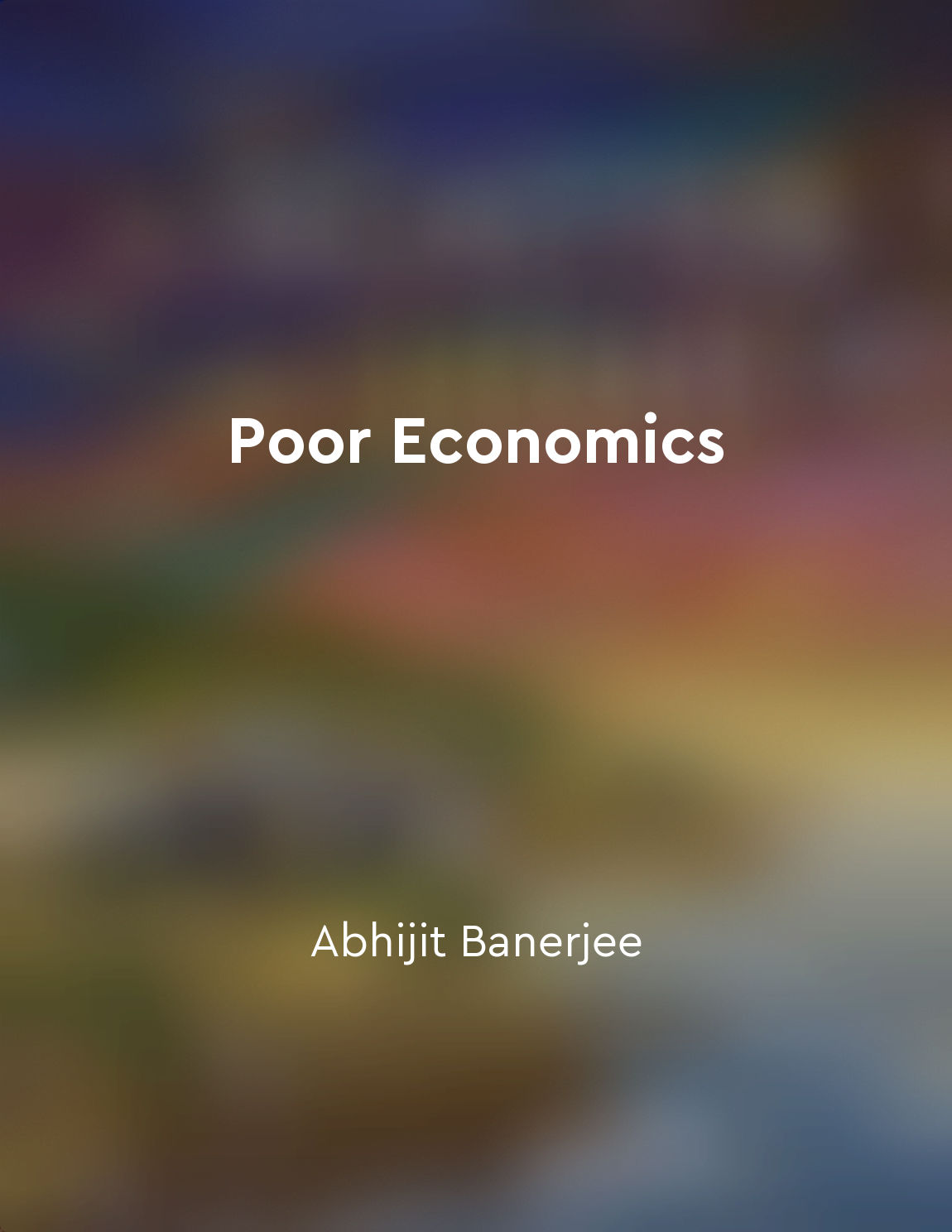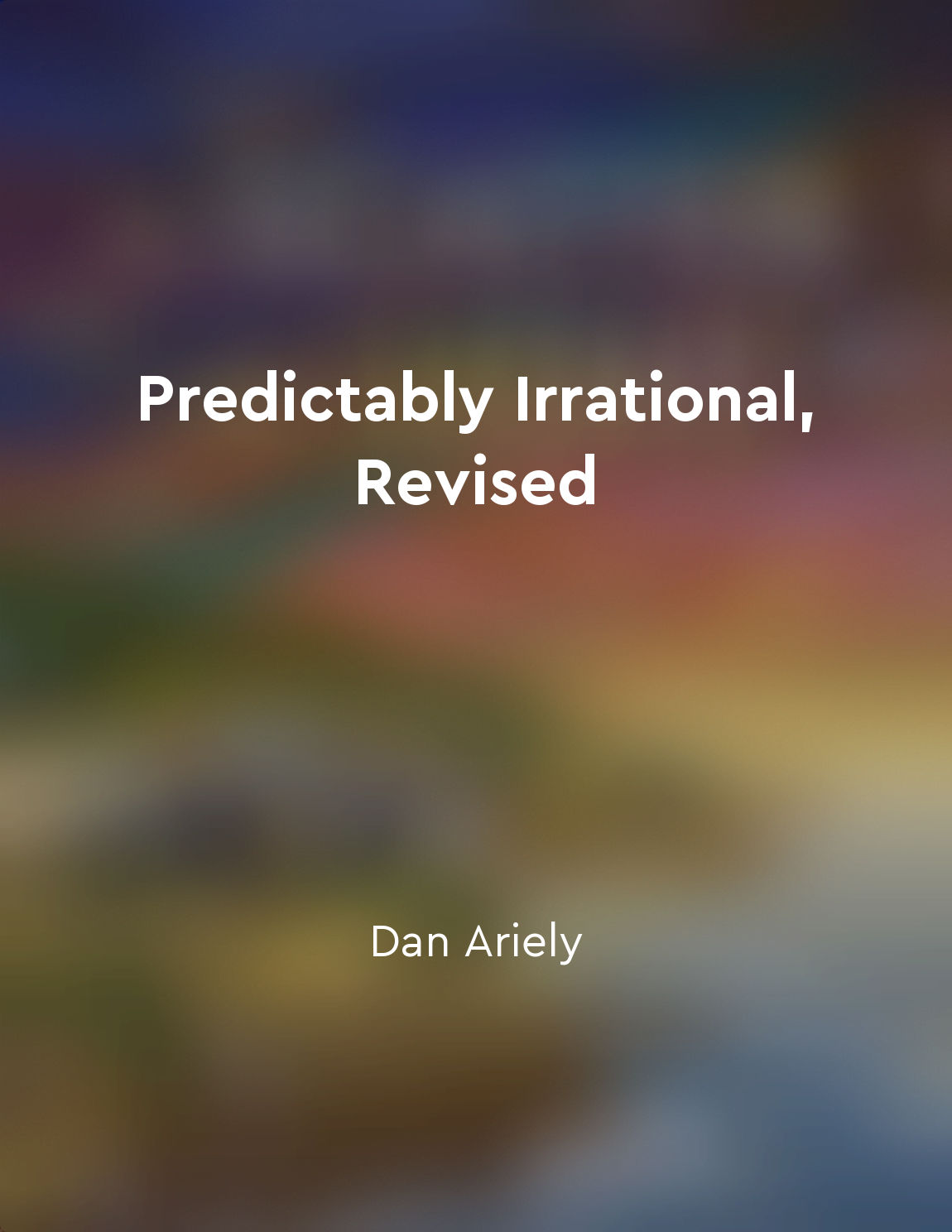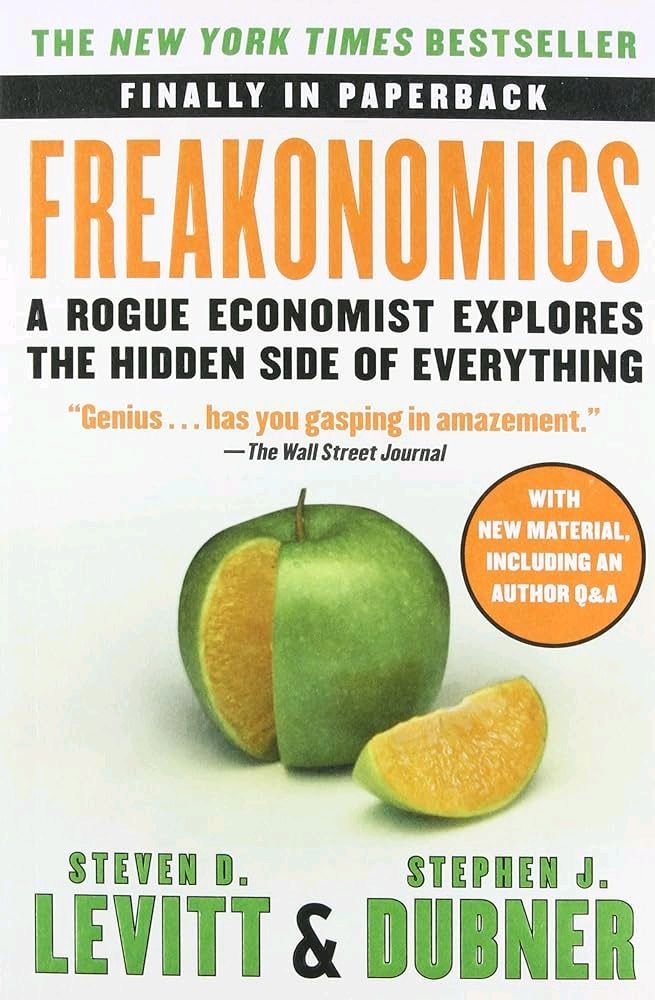Audio available in app
Understanding the motivations behind actions is key from "summary" of Freakonomics by Steven D. Levitt
The driving force behind human actions is often deeply rooted in personal motivations. Understanding these incentives is crucial when trying to decipher behavior patterns. In the realm of economics, this concept is particularly pertinent as it sheds light on why people make certain decisions – whether it be purchasing a product, committing a crime, or choosing a career path. Motivations can vary greatly from person to person, making it essential to delve into the underlying factors that influence decision-making. By peeling back the layers of human behavior, economists can uncover the true reasons behind certain actions. This insight can be invaluable in predicting future behaviors and crafting effective strategies to influence outcomes. In the book "Freakonomics," the authors delve into the world of incentives and motivations, highlighting the power they hold in shaping our choices. Whether it is the lure of financial gain, social recognition, or personal satisfaction, motivations play a pivotal role in steering our actions. By understanding these driving forces, we can gain a deeper understanding of the complexities of human behavior. In some cases, motivations may not be immediately apparent, requiring a closer examination of external factors and underlying beliefs. This level of analysis is crucial in uncovering the hidden forces at play and providing a more comprehensive view of human decision-making processes. By peering beneath the surface, economists can gain valuable insights that can inform policy-making and drive positive change.- The key to unlocking the mysteries of human behavior lies in understanding the motivations behind actions. By recognizing the power of incentives and the role they play in shaping our decisions, we can gain a deeper appreciation for the complexities of economic behavior. This insight not only enriches our understanding of the world around us but also empowers us to make more informed choices in our own lives.
Similar Posts

A lack of access to credit hinders economic progress
Access to credit is a fundamental aspect of economic progress. Without the ability to borrow money, individuals and businesses ...

Competition leads to innovation and efficiency
Competition is a powerful force that drives individuals and businesses to constantly strive for improvement. When firms are for...
Investment decisions are often based on gut feelings
Many people believe that investment decisions are often based on gut feelings rather than rational analysis. This concept sugge...
Behavioral biases affect financial decisions
Behavioral biases have a significant impact on our financial decisions, often leading us astray from making rational choices. T...
Avoid comparing yourself to others
When it comes to money and success, it is easy to fall into the trap of comparing ourselves to others. We see our friends, fami...
Markets are essential for coordinating economic activities
The coordination of economic activities is a complex and crucial task in any society. Without effective coordination, resources...
Don't let the endowment effect cloud your judgment
Imagine you own a painting that you purchased for a high price. Now, suppose someone offers to buy it from you for slightly mor...

Understanding our irrationality can help us make better decisions
In order to make better decisions, we must first come to terms with our own irrationality. By accepting that our decision-makin...
Humor can be a powerful persuasion tool
Humor has a unique ability to disarm, engage, and persuade people in ways that traditional forms of communication simply cannot...
These shortcuts can lead to errors
Our brains are wired to take shortcuts in order to process information quickly and efficiently. These shortcuts, known as cogni...


